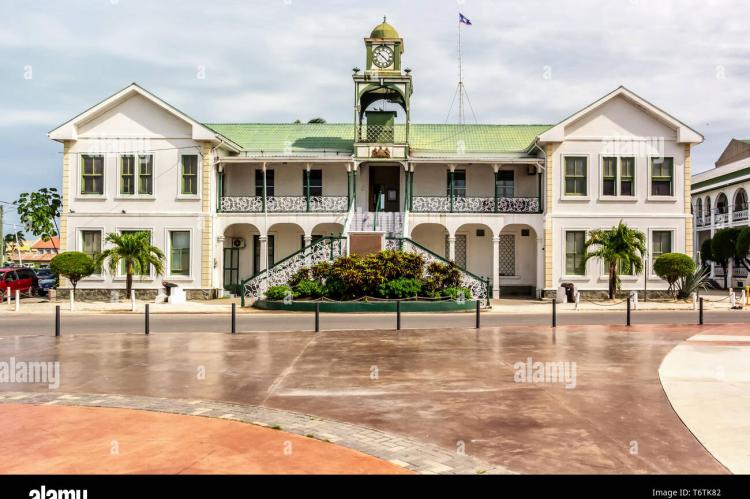Is Belize’s Judiciary Protecting Democracy or Undermining It?
By: Omar Silva
Editor/Publisher: National Perspective Bz – Digital 2025
Belize City: Wednesday, 19 February 2025
Editorial:
With Belize’s 2025 general elections fast approaching, the High Court’s decision to dismiss Jeremy Enriquez’s application for interim relief raises serious questions about judicial integrity and whether the courts are being used to shield the government from constitutional accountability.
The High Court’s focus on procedural technicalities rather than prioritizing the substantive constitutional breach has raised concerns about whether due legal process is being used as a delaying mechanism in favour of the administration., which is using delaying tactics to push through an election under unconstitutional electoral boundaries. The question must now be asked: Is the judiciary complicit in undermining democracy?
Judicial Deflection: Avoiding the Real Issue
The court’s rejection of Enriquez’s case was based on document formatting, digital template signatures, and procedural concerns—all secondary issues that do not change the core constitutional violation at hand. The 2019 consent order already confirmed that Belize’s electoral boundaries violate the Constitution, yet the government, armed with high-priced attorneys including a government senator, continues to stall and manipulate the process.
By prioritizing legal costs and document formatting over the immediate question of constitutional compliance, the judiciary risks enabling an electoral process that does not meet constitutional standards., the judiciary has effectively provided cover for the government’s refusal to implement redistricting, setting the stage for a fraudulent election.
Time for the Caribbean Court of Justice (CCJ) to Intervene?
Belizeans must now ask whether it is time to escalate this matter to the Caribbean Court of Justice (CCJ). The CCJ serves as Belize’s final appellate court, and unlike the High Court, it is not subject to domestic political pressures. The key legal grounds for taking the case to the CCJ include:
- Judicial Avoidance of a Constitutional Mandate
- The High Court is ignoring a constitutional crisis by refusing to address the government’s failure to implement redistricting.
- Section 90 of the Constitution clearly mandates equal and fair electoral divisions, yet the courts are dodging the issue.
- Lack of Judicial Independence in Belize
- Many of Belize’s High Court justices are contract employees from the Caribbean, dependent on government-controlled renewal of their contracts.
- This raises concerns about whether judicial decisions are being influenced by political considerations.
- Government’s Use of Delay Tactics
- By dragging out legal proceedings, the government aims to run out the clock until the elections occur on March 12, effectively nullifying any future legal challenges.
- The government’s hiring of a senator and Leader of Government Business as a defense attorney further exposes the conflict of interest at play.
Obstacles to Bringing the Case Before the CCJ
Taking the matter to the CCJ will not be easy. The case must typically go through Belize’s Court of Appeal first, which could take months—playing directly into the government’s hands. However, there is an alternative:
- Filing for an Emergency CCJ Injunction
- If Belize’s courts refuse to act, an urgent appeal to the CCJ could be made on the grounds that allowing the elections to proceed would cause irreparable harm to democratic rights.
- The CCJ has ruled on constitutional and electoral cases in the past, and a direct appeal could force international scrutiny on Belize’s governance crisis.
The Belizean People Must Demand Judicial Integrity
Belizeans must not allow this legal crisis to be buried under procedural distractions. The people must demand that the courts uphold democracy, not enable its destruction. This means:
- Pushing for the Court of Appeal to expedite the case before March 12.
- Mounting public pressure for an urgent CCJ intervention.
- Challenging judicial complicity in enabling unconstitutional elections.
The Judiciary is on Trial
If Belize’s courts delay addressing the fundamental question of electoral fairness and constitutional compliance, they risk being perceived as enabling an election that does not meet constitutional standards., they will forever be complicit in dismantling democracy. The world is watching, and if justice is denied in Belize, the CCJ must intervene before it is too late. The future of Belize’s democracy depends on it.
- Log in to post comments

